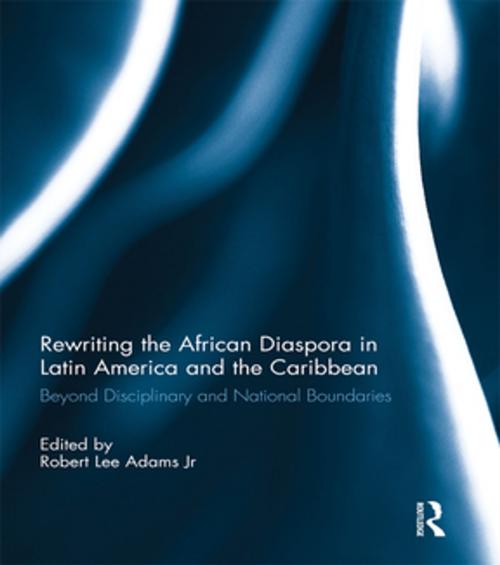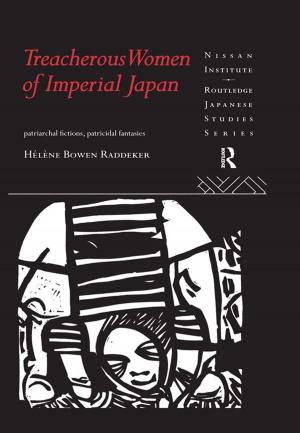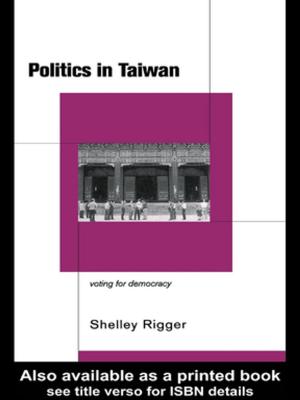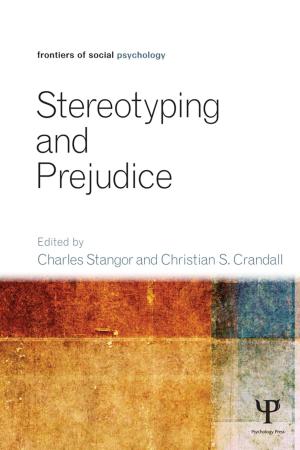Rewriting the African Diaspora in Latin America and the Caribbean
Beyond Disciplinary and National Boundaries
Nonfiction, Social & Cultural Studies, Social Science, Sociology| Author: | ISBN: | 9781317850458 | |
| Publisher: | Taylor and Francis | Publication: | October 14, 2014 |
| Imprint: | Routledge | Language: | English |
| Author: | |
| ISBN: | 9781317850458 |
| Publisher: | Taylor and Francis |
| Publication: | October 14, 2014 |
| Imprint: | Routledge |
| Language: | English |
This volume considers the African Diaspora through the underexplored Afro-Latino experience in the Caribbean and South America. Utilizing both established and emerging approaches such as feminism and Atlantic studies, the authors explore the production of historical and contemporary identities and cultural practices within and beyond the boundaries of the nation-state.
Rewriting the African Diaspora in the Caribbean and Latin America illustrates how far the fields of Afro-Latino and African Diaspora studies have advanced beyond the Herskovits and Frazier debates of the 1940s. The book’s arguments complicate Herskovits’ insistence on Black culture being an exclusive reflection of African survivals, as well as Frazier’s counter-claim of African American culture being a result of slavery and colonialism. This collection of thought-provoking essays extends the concepts of diaspora and transnationalism, forcing the reader to reassess their present limitations as interpretive tools. In the process, Afro-Latinos are rendered visible as national actors and transnational citizens.
This book was originally published as a special issue of African and Black Diaspora.
This volume considers the African Diaspora through the underexplored Afro-Latino experience in the Caribbean and South America. Utilizing both established and emerging approaches such as feminism and Atlantic studies, the authors explore the production of historical and contemporary identities and cultural practices within and beyond the boundaries of the nation-state.
Rewriting the African Diaspora in the Caribbean and Latin America illustrates how far the fields of Afro-Latino and African Diaspora studies have advanced beyond the Herskovits and Frazier debates of the 1940s. The book’s arguments complicate Herskovits’ insistence on Black culture being an exclusive reflection of African survivals, as well as Frazier’s counter-claim of African American culture being a result of slavery and colonialism. This collection of thought-provoking essays extends the concepts of diaspora and transnationalism, forcing the reader to reassess their present limitations as interpretive tools. In the process, Afro-Latinos are rendered visible as national actors and transnational citizens.
This book was originally published as a special issue of African and Black Diaspora.















